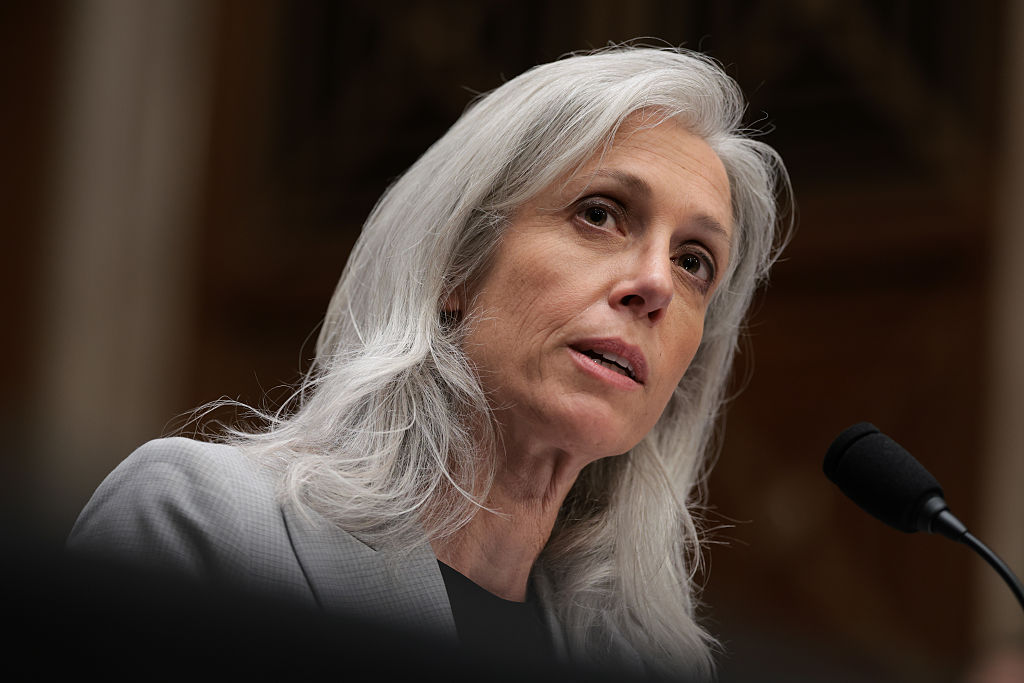Bankrupt Hudson’s Bay Corporation told court Thursday that accepting B.C. billionaire Weihong ‘Ruby’ Liu’s offer of $69 million for its 25 leases is the only way to realize value for creditors, despite opposition from landlords.
The now-defunct retailer was making its case at the Ontario Superior Court of Justice to compel the transfer of its leases to Liu, chairwoman of Central Walk, who is looking to launch a department store chain under her English name, Ruby Liu.
The hearing will continue Friday.
“The Central Walk transaction is the last and only chance to monetize any of the retailer’s leases,” said Maria Konyukhova, Hudson’s Bay’s lawyer, who was first to speak.
Konyukhova added that the $69-million lease transfer benefits the estate and aligns with the purpose of the Companies’ Creditors Arrangement Act, which is to maximize value for stakeholders.
Liu’s bid has met staunch opposition from the retailer’s landlords and the court-appointed monitor, who labelled her team a “startup business” with no retail track record, alongside a countermotion from Hudson’s Bay’s senior creditor, Restore, seeking to block the lease-transfer transaction.
Konyukhova described the landlords’ objections as “exaggerated,” arguing they were framed around an “absurdly high standard.”
She said the landlords are driven by a windfall that would arise from shedding below-market lease contracts signed with Hudson’s Bay years ago if the court rejects Liu’s bid.
Konyukhova then cited section 11.3 of the CCAA, noting that courts can approve an assignment regardless of whether the counterparty’s refusal was reasonable or not.
“That’s the whole point of 11.3, to compel an assignment in the absence of consent,” said Justice Peter J. Osborne.
Osborne then pushed back on Konyukhova, noting he is weighing a bid that isn’t aimed at continuing Hudson’s Bay’s business, but to create Liu’s brand and pay only one or two creditors while binding landlords to a long-term relationship with an unconsented tenant.
If successful, Liu’s bid would yield the defunct retailer’s senior creditors, Pathlight Capital and Restore, more than $50 million. Restore, however, also opposes Liu’s bid, contending that most of the proceeds favour Pathlight.
Osborne also questioned why Liu’s business plan relies on Hudson’s Bay’s 2025 financial forecast, noting, “we know that didn’t work out, and that’s why we’re here.”
Konyukhova responded that the Canadian retail icon failed due to heavy debt, whereas Liu’s plan is funded with its own cash and involves shedding unprofitable parts of the Bay’s business.
A half-hour before the hearing, the back of the courtroom was crowded with members of the public, including Liu’s employees and about 10 former Hudson’s Bay staff rallying behind her.
On Thursday, Osborne also heard from Jeremy Opolsky, counsel for Cadillac Fairview, on behalf of other opposing landlords, who argued Liu’s company lacks department store expertise, an experienced management team, brand recognition or goodwill, and is relying on an “improvised, constantly shifting” business plan.
Opolsky said the near-unanimous opposition from landlords is “unprecedented.”
The court-appointed monitor’s report, he added — which concludes that Liu’s company could “meet the financial obligations” under the leases, but might fall short on non-monetary commitments — should not be taken lightly.
“We can find no case where the court has approved an assignment that the monitor has disapproved of the transaction,” Opolsky said.
Central Walk counsel, R. Graham Phoenix, dismissed landlords’ concerns that Ruby Liu Commercial Investment is merely a “shell company.”
Phoenix said Liu, with more than $300 million in liquid assets available to her by June 2026, will commit $400 million to fund the new corporation and personally guarantee rent obligations under the leases for one year. The funding, he added, would come from Liu’s personal wealth as well as cash she can draw from Central Walk’s operations and properties.
“The purpose of the CCAA is to allow entrepreneurs like Ms. Liu to seize opportunities put before them,” Phoenix said.
Landlords’ demands for a “guarantee of success” in the business plan set an unrealistically high bar for any proposed assignee under the CCAA, said Jeremy Dacks, lawyer for Pathlight Capital.
Opolsky disagreed, saying the landlords opposed the bid because, essentially, “this is a bad deal.”
He added that the extensive evidence in the landlords’ submissions and third-party expert reports shows Liu would be unable to meet the financial obligations, and that the budget for store renovations falls short of what is actually required.
“It’s consistent that this is a bad tenant, not a suitable fix and an inappropriate assignment,” he said.
“I’m nervous now,” Liu, dressed in a black jacket and red shirt, told the Star before court on Thursday. “I’ve been looking forward to this day for a long time.”
Liu added that she is confident she will win and was touched by the Hudson’s Bay employees who voluntarily came to support her.



